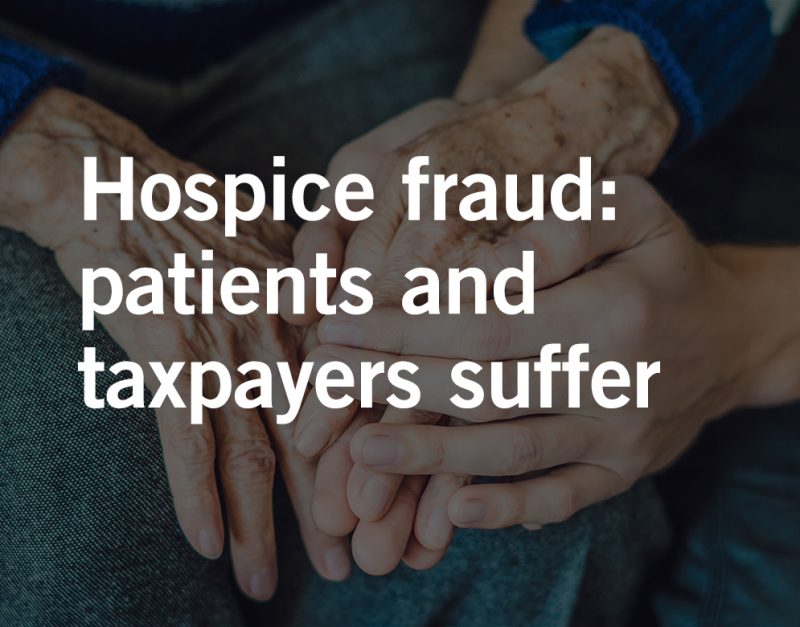 October 16, 2018
October 16, 2018 Hospice providers are scamming patients and the American public alike, according to data, and not providing the best care possible.
An Inspector General report finds that the hospice industry is fraught with fraud and neglect. The study looked into patient and Medicare payment data from the last 13 years and found that some hospice providers are billing Medicare while neglecting their patients. The report suggests that the Centers for Medicare and Medicaid Services increase their level of oversight to more effectively detect issues within their organizations.
Did you witness hospice care fraud? Contact us today for a confidential case review.
Who Does Hospice Care Fraud Harm?
Hospice care is an often-used end-of-life service for patients and their families. Whether the care takes place at home or in an inpatient facility, hospice care provides pain relief options as well as spiritual and emotional support.
The amount of money that Medicare pays hospice providers continues to increase. These providers, in particular, are paid per patient, per day. This is contrary to many other providers who are paid per service rendered. Nancy Harrison, a deputy regional inspector general in the U.S. Department of Health and Human Services and the lead author of the report, emphasizes that “regardless of the number of services they provide and regardless of the quality of care they provide,” hospices are still paid.
The Dire Consequences of Medicare Fraud
The report says that “some hospice providers are billing Medicare and neglecting patients.” Patient neglect can be an indication of Medicare/Medicaid fraud, particularly when the problem is systemic across a large hospice chain.
The report also shows non-terminal patients have been coerced into or unknowingly enrolled in hospice care. Upon enrolling in hospice care, the patient simultaneously waives the right for curative treatment. Medicare may no longer pay for treatments for the patient’s illness. Only palliative care may be administered and attempts to revive a hospice patient are usually waived.
There are numerous ways in which companies or individuals perpetuate fraud in Medicare and Medicaid including but not limited to:
- Improper billing procedures at higher priced codes
- Billing for services never provided
- Billing for unneeded treatments
- Enrolling non-terminal patients in hospice care
How is Medicare Fraud Detected?
Under the Federal False Claims Act, whistleblowers have the power to save taxpayers millions of dollars in higher priced codes, billing for services that were never provided, or billing for treatments the patient did not need. The False Claims Act allows private citizens to file suits on the government’s behalf when the government has been defrauded through any federally funded contract or program.
How Can Waters Kraus Paul & Siegel Help?
Waters Kraus Paul & Siegel is a national plaintiffs’ firm with lawyers litigating complex civil matters as well as practicing qui tam whistleblower litigation and False Claims Act litigation nationwide. Based in Dallas, Texas, the firm has offices in Los Angeles, Baton Rouge, and by appointment in Moline. Our attorneys represent whistleblowers exposing fraud and false claims against the government in a variety of matters including government contractor fraud and procurement fraud, health care fraud, assisted living fraud, SEC fraud, and Foreign Corrupt Practices Act (FCPA) violations. Contact us online or at 866.295.4518 to learn more about our practice and our qui tam attorneys. Inquiries are treated discreetly and kept confidential.


